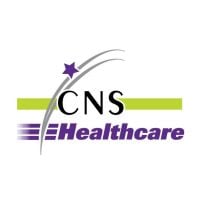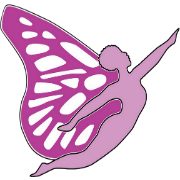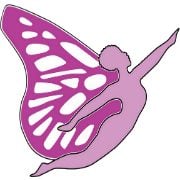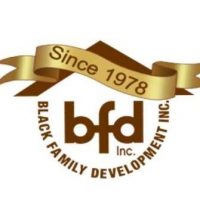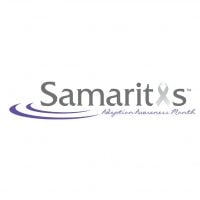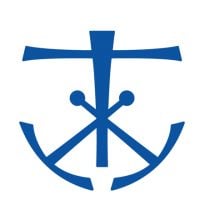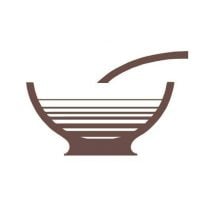Northeast Guidance Center - Detroit
Drug Rehab Center in Detroit, Michigan
The Northeast Guidance Center - Detroit is an accredited, comprehensive facility offering a wide range of evidence-based treatments for individuals struggling with drug and alcohol abuse, mental health issues, and co-occurring disorders, which can be accessed through private insurance and accepted by the state.
About This Michigan Facility
Northeast Guidance Center is nestled in Detroit, Michigan, with a specialized focus on the treatment of dual diagnosis and mental health issues. Unique to its mission, it intertwines innovative community-based services, aiming to address the intertwined nature of behavioral issues and substance abuse in both adults and families.
Accredited by CARF and holding a State License, Northeast Guidance Center assures a high standard of care and broadens access through accepting private health insurance. Their tailored dual-diagnosis programs and outpatient services are pivotal in their approach to treatment, providing flexibility and comprehensive care.
- Specializes in treating dual diagnosis, addressing both mental health and substance abuse together.
- Offers flexibility with outpatient levels of care, allowing patients to maintain daily responsibilities.
- Accredited by CARF, ensuring treatments meet rigorous standards of quality and care.
The center treats conditions like drug addiction, alcoholism, and various substance abuses through its comprehensive programs. By offering both dual-diagnosis treatment and outpatient care, Northeast Guidance Center delivers personalized therapies designed to promote long-term recovery and well-being.
Genders
Ages
Modality
Additional
Accreditations
State License

CARF
The Commission on Accreditation of Rehabilitation Facilities (CARF) is a non-profit organization that specifically accredits rehab organizations. Founded in 1966, CARF's, mission is to help service providers like rehab facilities maintain high standards of care.
Conditions and Issues Treated
Substance abuse is defined by the continued use of drugs or alcohol despite negative consequences, such as legal or work problems. It can be treated using a variety of services, including therapy and medication.
Substance abuse treatment is beneficial for:
- People who have been using drugs or alcohol for a long time.
- People who have been using drugs or alcohol to cope with stress, anxiety, or depression.
- People who have a mental health disorder in conjunction with substance abuse.
- People who continue to use drugs or alcohol despite the harmful effects they cause on their own life and the lives of others.
- People who have had multiple failed attempts at recovery without medical assistance.
If you believe that addiction treatment is right for you or a loved one, you can contact your primary care physician, or search for addiction treatment centers in your area. Treatment is beneficial to people who are motivated towards recovery, and who understand the benefits of professional care.
There are different kinds of Dual Diagnosis:. A person who simultaneously experiences both a mental illness and an addiction disorder. Or, a person who experiences one or more coexisting (simultaneous) mental health conditions in addition to a primary substance use disorder.
The treatment requires a multi-disciplinary approach, it’s crucial for individuals to partner up with a healthcare provider who understands all the recovery components.
Levels of Care Offered at Northeast Guidance Center - Detroit
This center offers a variety of custom treatment tailored to individual recovery. Currently available are Dual-Diagnosis, Outpatient, with additional therapies available as listed below.
The outpatient programs in Detroit, MI are for those addicted drugs or alcohol. The goal of the outpatient rehabilitation program is to make them stop abusing drugs or alcohol, reduce drug use or addictive behaviors, and become entirely sober. It is generally required to attend the outpatient program for 10-12 hours every week.
Patients can be administered on-the-spot medication to ease withdrawal symptoms such as anxiety, increased heart rate, and even depression. Groups such as Alcoholics Anonymous (AA) and Narcotics Anonymous (NA) can be used as a part of outpatient treatment to help maintain sobriety.
Therapies & Programs
People in addiction recovery can benefit from individual therapy. This type of therapy involves meeting with a therapist one-on-one. This allows for a personal and trusting relationship to be built so that the patient can be truly themselves and express any emotions they feel. Individual therapy leads to greater understanding and peace about your triggers for addiction and coping strategies to prevent relapse.
Family therapy is a type of group problem-solving that aims to improve communication and relationships between the patient, their family, and sometimes friends. The main goal of family therapy for drug addiction is to create an environment where communication can occur without judgment, hostility, or blame. The therapist is with the family as they learn to communicate with each other differently, especially with the addict when s/he is using.
Group therapy sessions are held in rehab facilities, clinics, churches or community centers that offer drug addiction treatment. People who attend these groups are encouraged to voice their feelings and support other addicts in recovery. This helps group members strengthen their own recovery program while cheering on others who are struggling with sobriety.
Group therapy sessions provide recovering addicts with a chance to cope with everyday situations that many face. Group therapy sessions are held in rehab facilities, clinics, churches or community centers that offer drug addiction treatment.
People who attend these groups are encouraged to voice their feelings and support other addicts in recovery. This helps group members strengthen their own recovery program while cheering on others who are struggling with sobriety.
If you’re looking for addiction treatment, it’s important to find a facility that offers trauma therapy. This type of therapy helps people process and understand the past traumas that have led to their addiction. Trauma therapists will work with clients to help them understand their past and present relationships and show them that they are worthy of love. This therapy is typically done using visualization, discussion, and writing down thoughts and feelings.
Trauma Therapy is a form of therapy that involves working with a patient to help them process and understand the past trauma(s) in their life. This therapy is typically done using techniques such as visualization, discussion, and writing down thoughts and feelings. The main goals of trauma therapy is to help clients express their emotions and talk about what they are feeling.
Dialectical Behavior Therapy (DBT) is a form of cognitive-behavioral therapy that helps people understand how they connect their thoughts, behaviors, and feelings. It can give them more control over their actions, effectively stopping self-harm ideations and attempts in some patients. It also helps put those with borderline personality disorder into control for managing mental struggles.
A new study has shown that DBT works for those with self-harm behaviors and addictions by giving them therapy they can relate to and understand.
Cognitive Behavioral Therapy (CBT) helps addicts identify faulty, negative thinking so that they can work together with the therapist to find healthier ways of thinking. CBT focuses on specific aspects of each person’s thinking, feeling, physiology, and behavior. It aims to identify specific problems in these areas, and create a personalized treatment strategy.
Addicts often experience intense cravings for sugary foods during recovery. By teaching addicts how to eat well and stay healthy, therapists can help them manage their cravings over the course of treatment.
During these sessions, Detroit, Michigan dietitians and therapists will offer advice about healthy eating options and teach addicts how to make specific changes in their diet that can help reduce the effects of cravings during recovery.This type of therapy is often used in conjunction with other types of addiction treatment services. By identifying specific triggers and developing strategies to help addicts avoid relapse, most individuals can overcome their cravings and stay sober for good after they finish rehab.
The first step to becoming a non-smoker is the choice to quit smoking. Nicotine replacement therapies are effective because they provide you with the nicotine you are addicted to without inhaling carcinogens from cigarettes.
There are several types of NRT. These include:
- Nicotine gum
- Nicotine patches (transdermal systems)
- Nasal spray
- Lozenges
The benefits to using NRT can include:
- Reduce the risk of heart disease and cancer
- Reduce the anxiety and irritability associated with quitting smoking
- Reduce the risk of type II diabetes.
- Improved fertility in women
Patient Experience
Experiential Therapy at Northeast Guidance Center - Detroit
Experiential Therapy allows addicts to release emotions in a safe environment. The process involves addicts painting their feelings and releasing them on a canvas. LPE – Love, Peace, and Equilibrium is one of the most popular forms of experiential therapy.
Fitness Therapy
Fitness therapy is beneficial in drug treatment programs. It provides an alternate coping mechanism for stress, a new outlook on life, and a sense of community and involvement (NIDA, 2002). It is especially useful for those who were formerly involved in organized sports.
Additional benefits of fitness therapy are enhanced physical appearance, an improved body image, and socialization with like-minded individuals. Due to fitness therapy, patients are less likely to relapse into drug addiction. Fitness therapy leads to a reduction in depression, anxiety, and stress. It can even help to improve memory and concentration.
Payment Options Accepted
For specific insurance or payment methods please contact us.
Is your insurance accepted?
Ask an expert, call (888) 674-0062
Northeast Guidance Center Associated Centers
Discover treatment facilities under the same provider.
Learn More About Northeast Guidance Center Centers
Additional Details
Specifics, location, and helpful extra information.
Detroit, Michigan 48215 Phone Number(313) 308-1408 Meta DetailsUpdated April 15, 2024
Staff Verified
Patient Reviews
There are no reviews yet. Be the first one to write one.
Detroit, Michigan Addiction Information
Michigan has the second-highest rate of drug and alcohol abuse in the nation. Heroin is linked to more than 50% of the state's hepatitis C cases. Marijuana is the drug most often associated with crimes in Michigan, followed by methamphetamines. Opioids alone are responsible for almost 20% of all drug overdose deaths in Michigan.
Over 1,000 drug-related overdose deaths occurred in Detroit, Michigan, in 2017 alone. Opioids (42%) and benzodiazepines (22%) are the most common drugs involved in overdose deaths. Drug overdoses killed more people in 2016 than homicides. In Detroit, Michigan, there are a variety of drug rehab centers to choose from. The most important thing is to find a facility that will best meet the needs of the individual.
Treatment in Nearby Cities
- Manistique, MI (295.4 mi.)
- Redford, MI (16.8 mi.)
- Cheboygan, MI (237.3 mi.)
- Menominee, MI (298.5 mi.)
- Reed City, MI (164.3 mi.)
Centers near Northeast Guidance Center - Detroit
The facility name, logo and brand are the property and registered trademarks of Northeast Guidance Center - Detroit, and are being used for identification and informational purposes only. Use of these names, logos and brands shall not imply endorsement. RehabNow.org is not affiliated with or sponsored by Northeast Guidance Center - Detroit.
